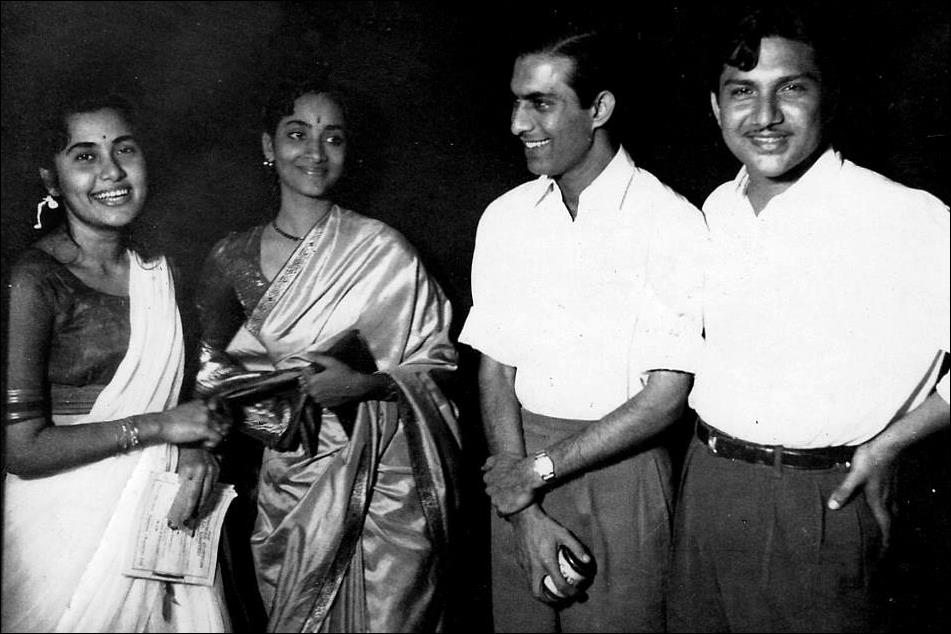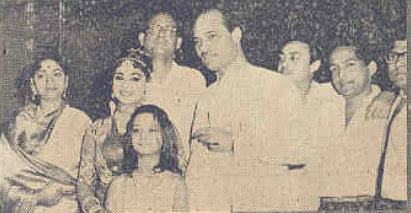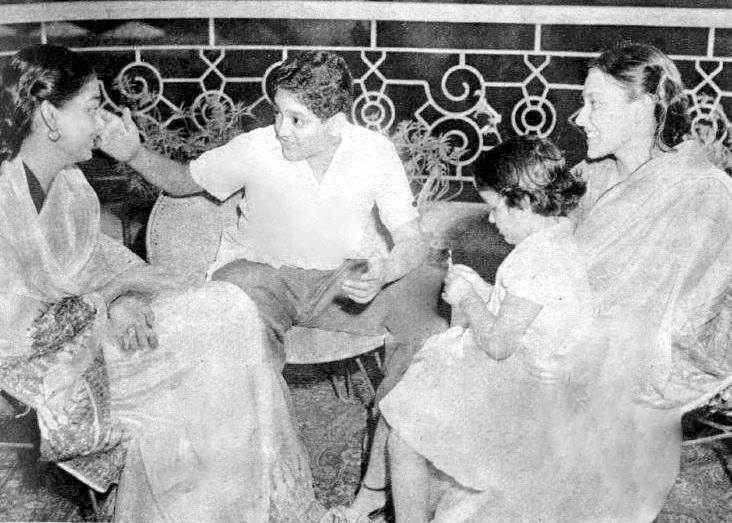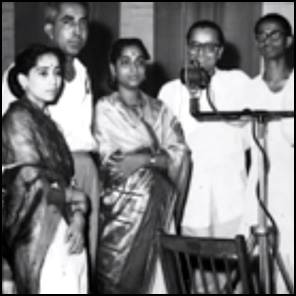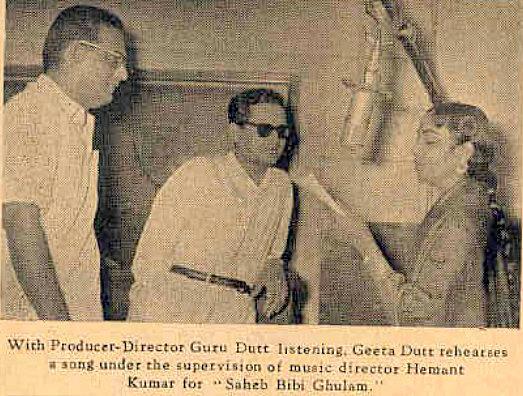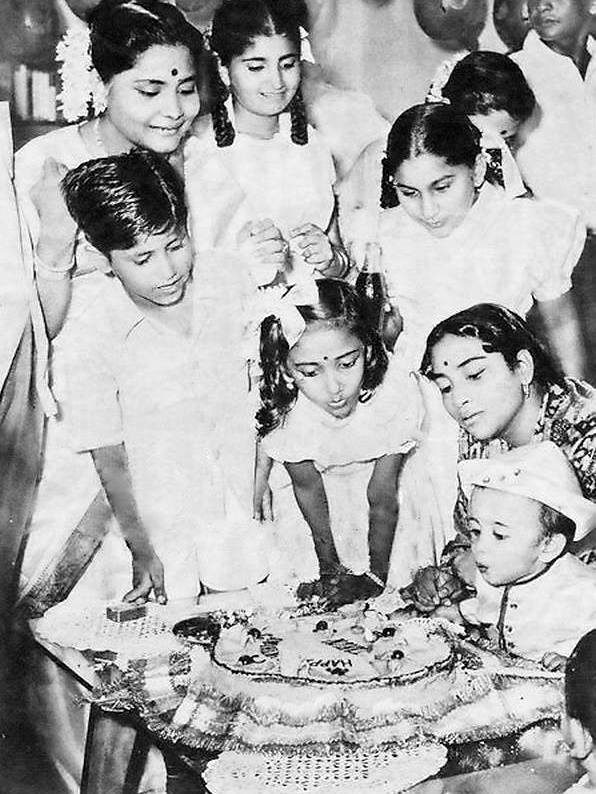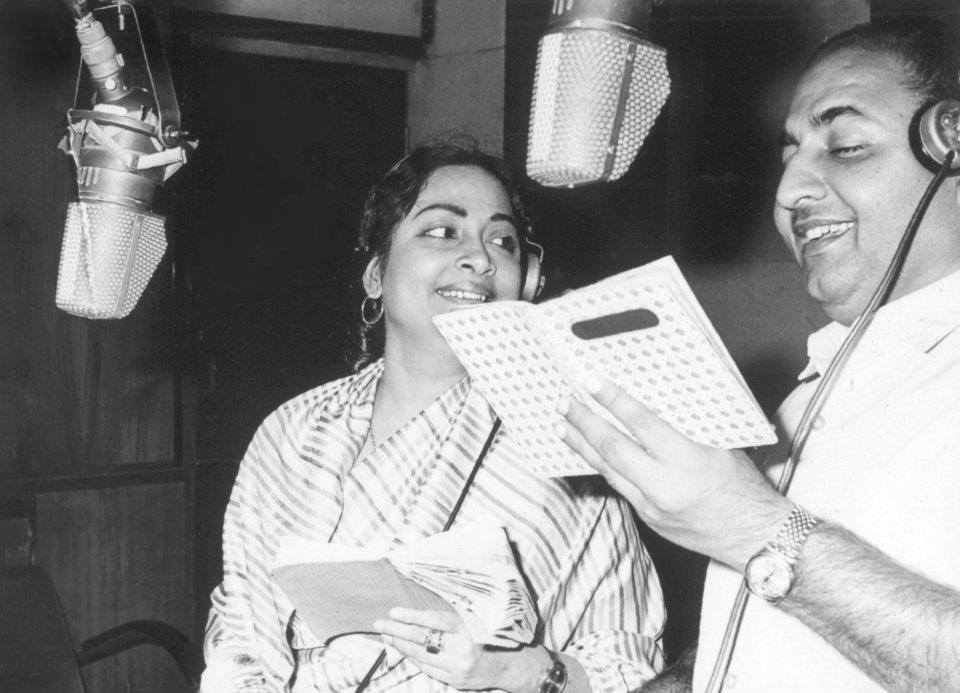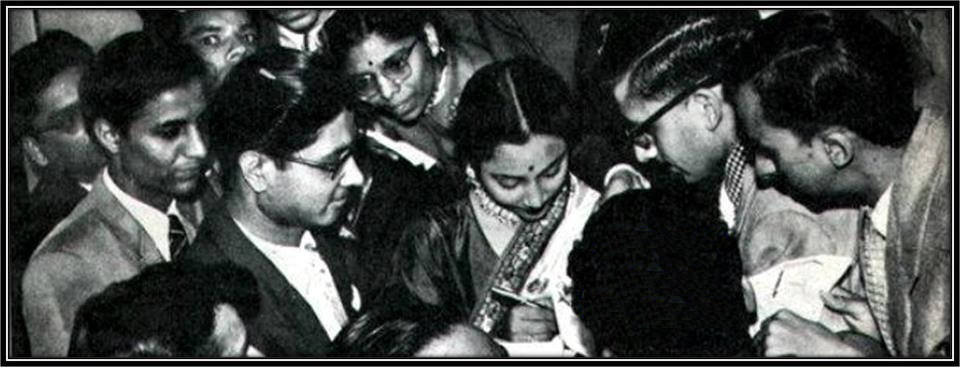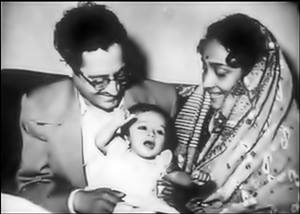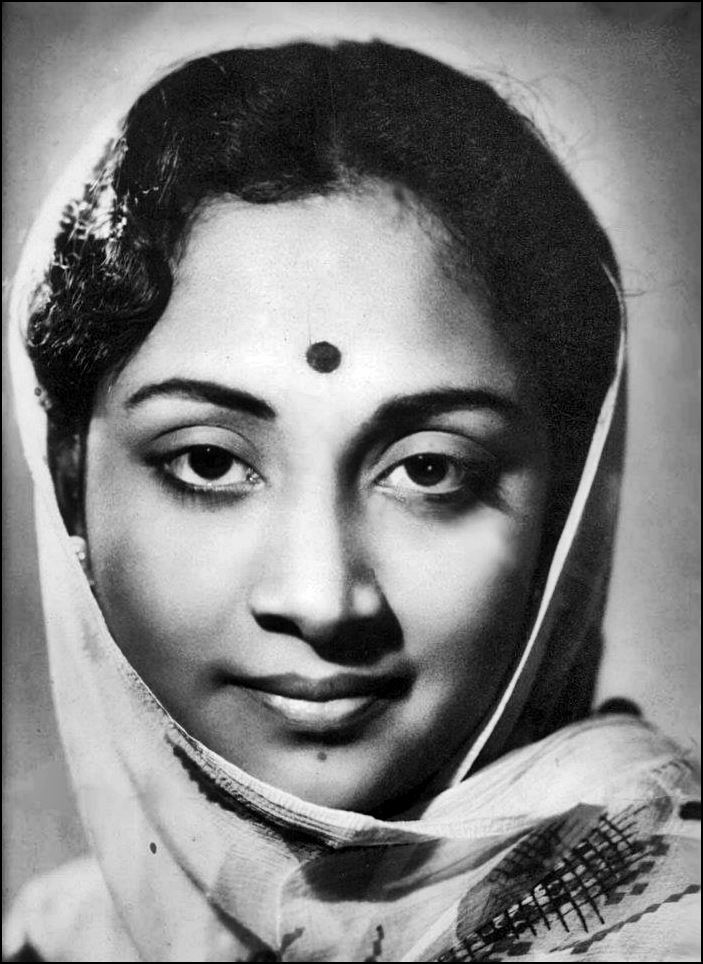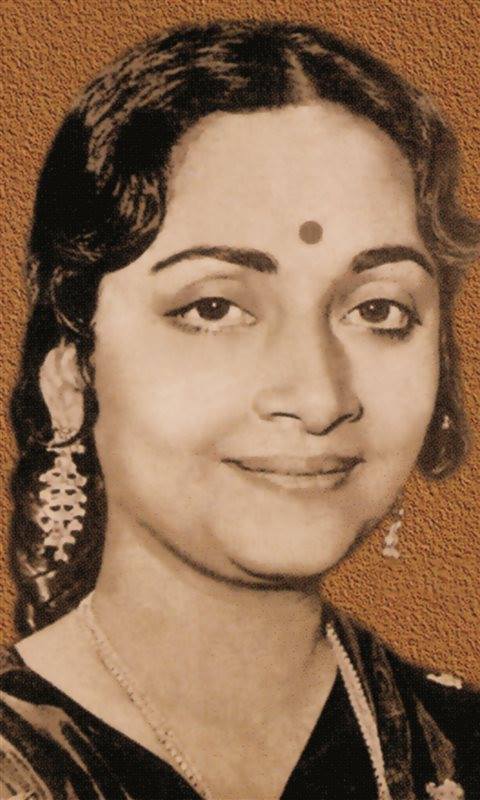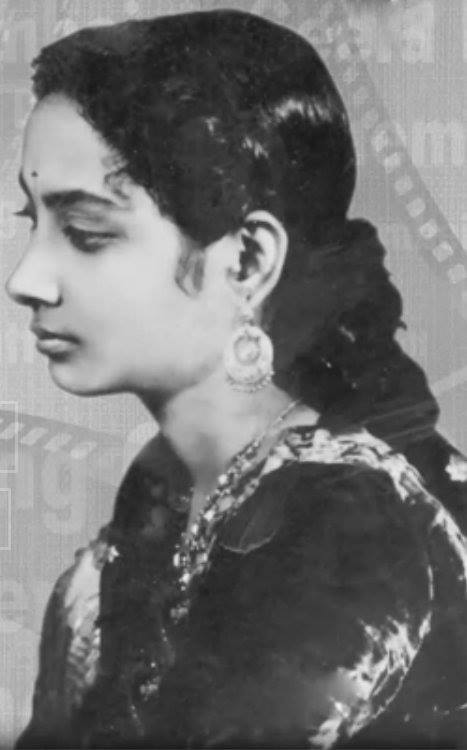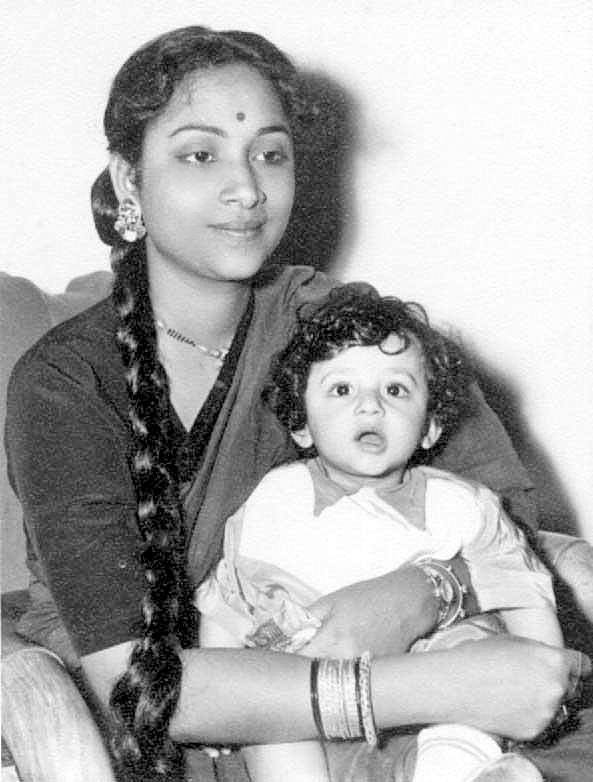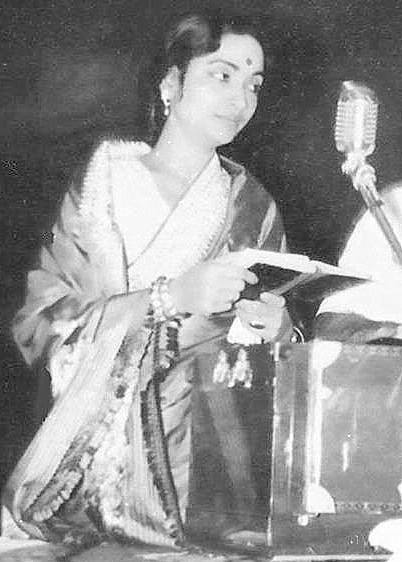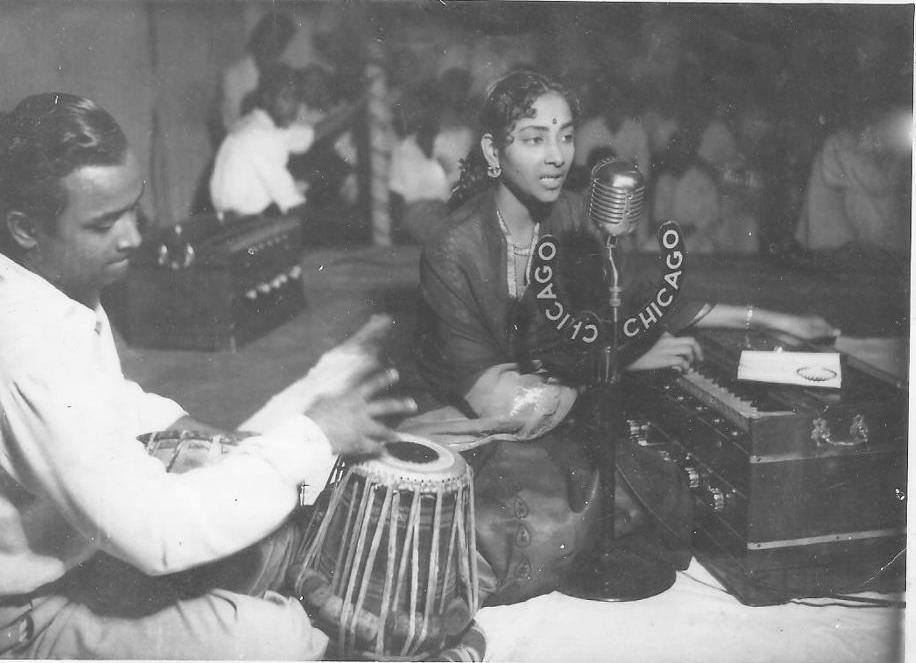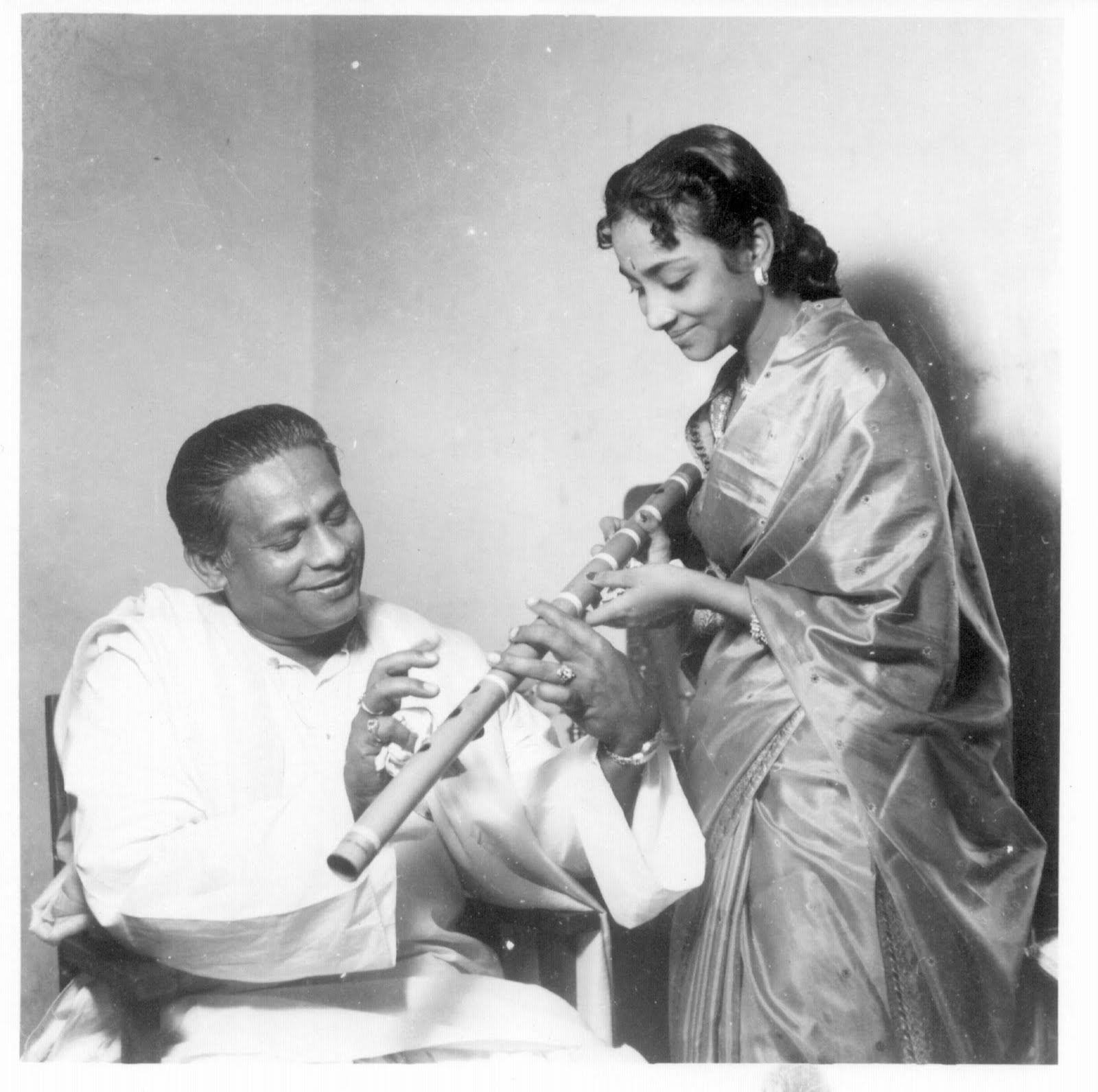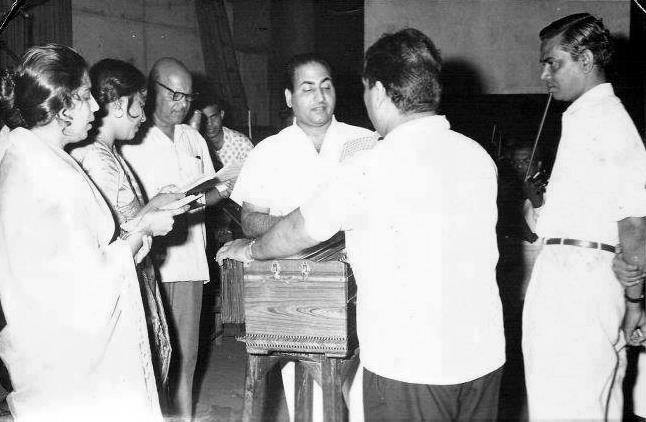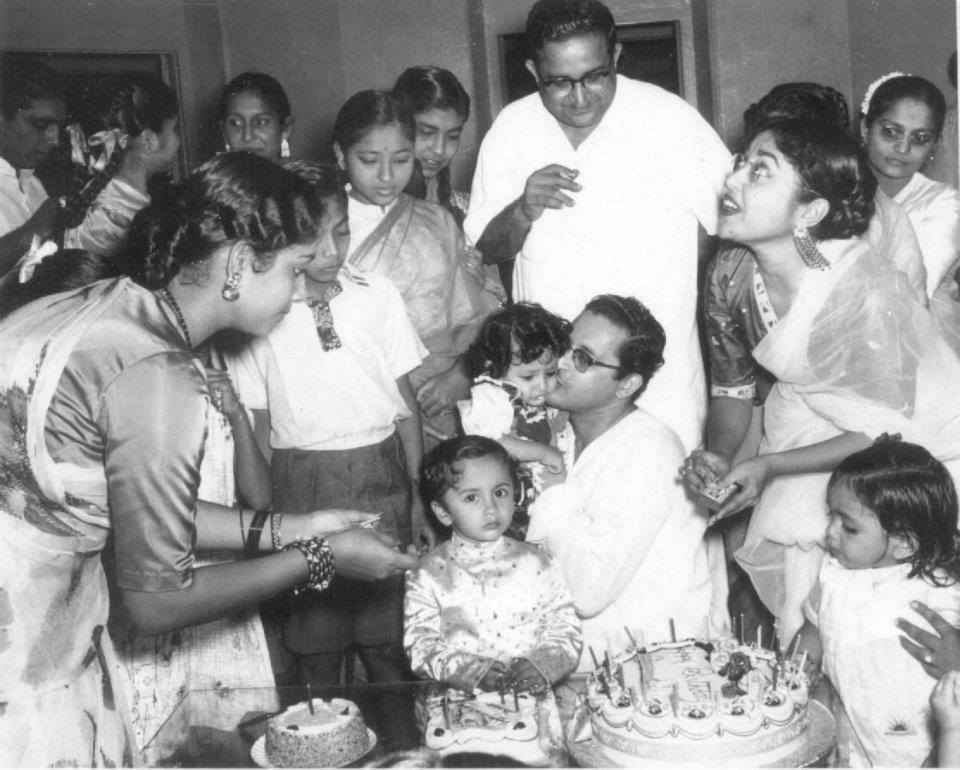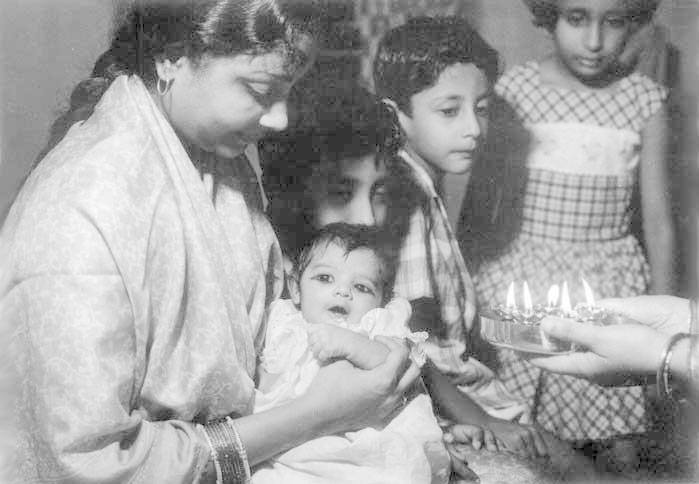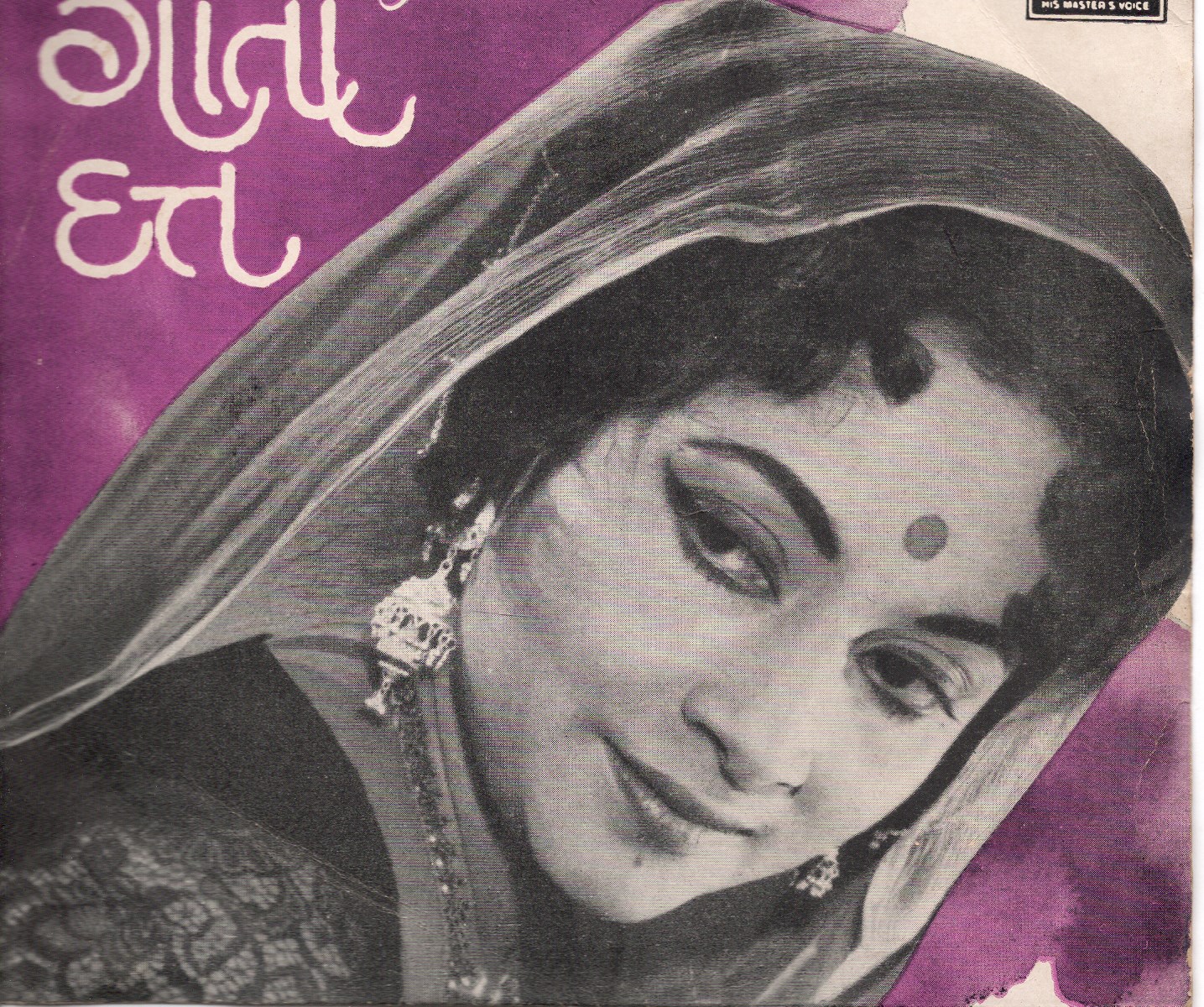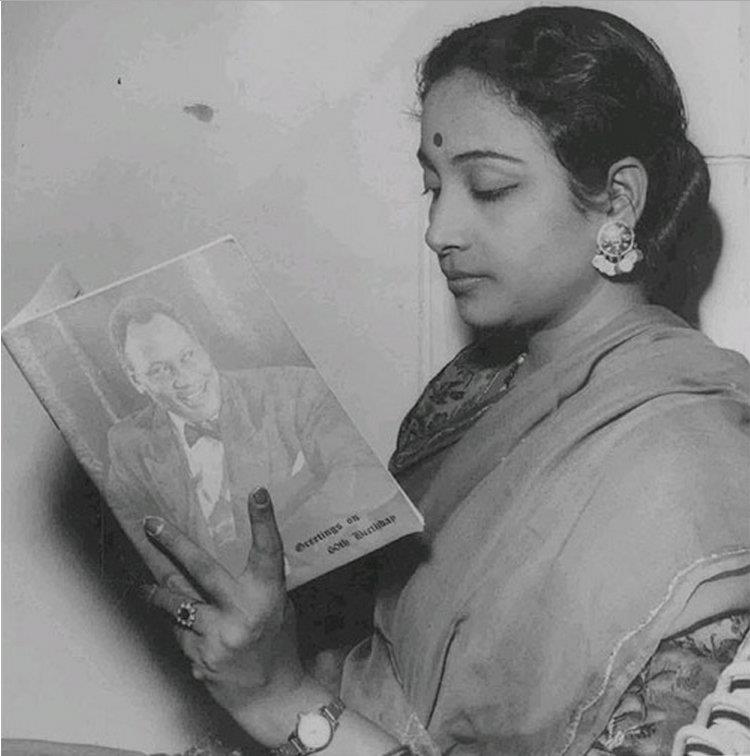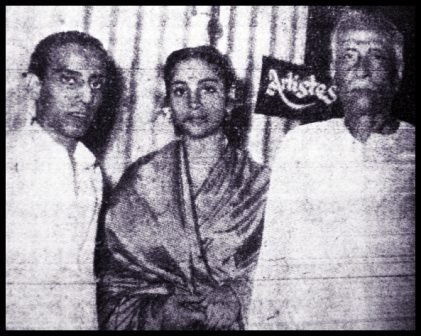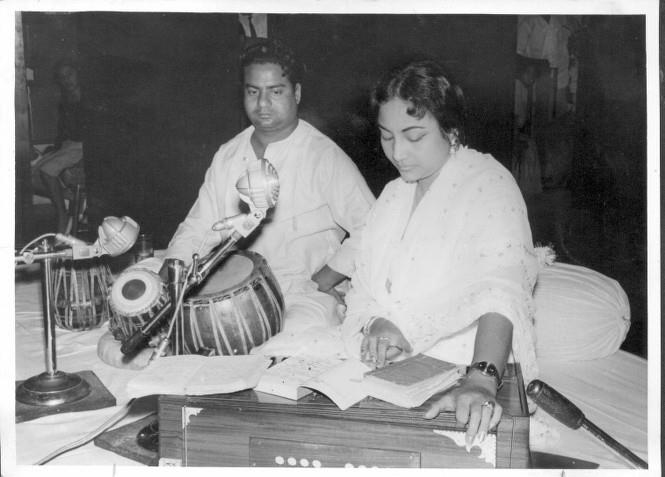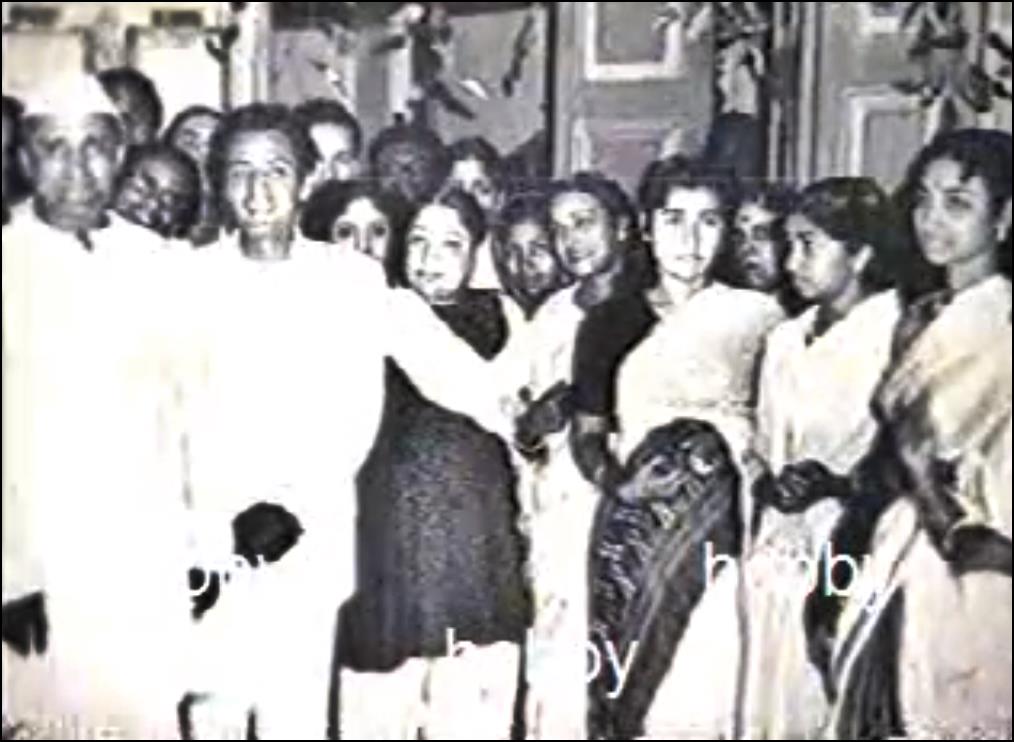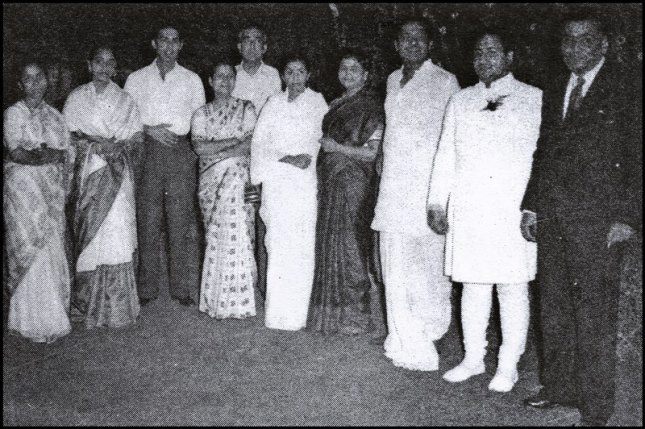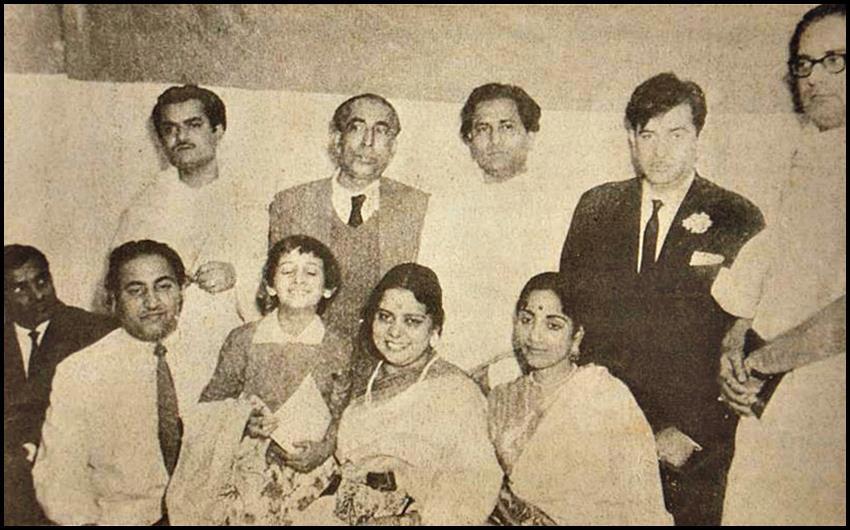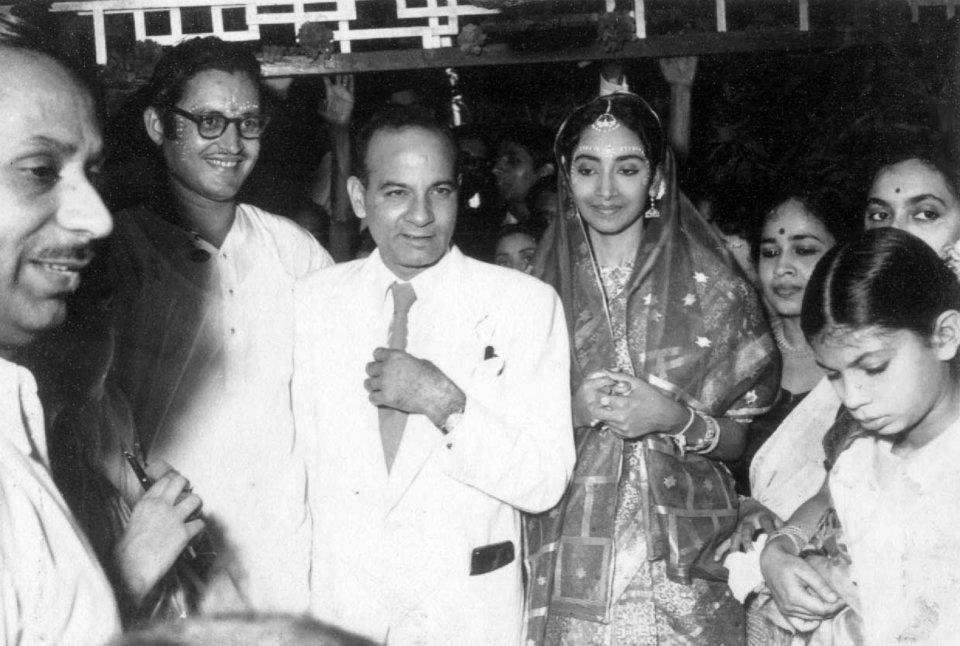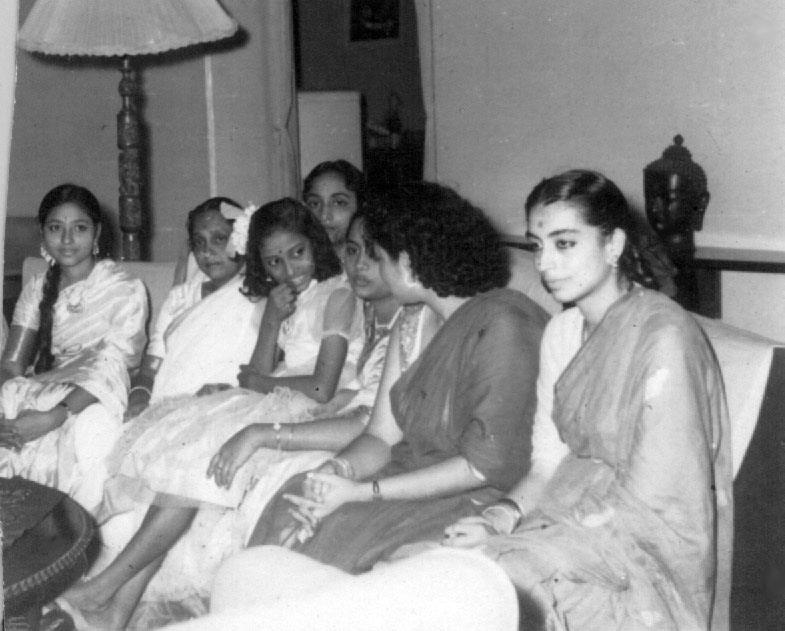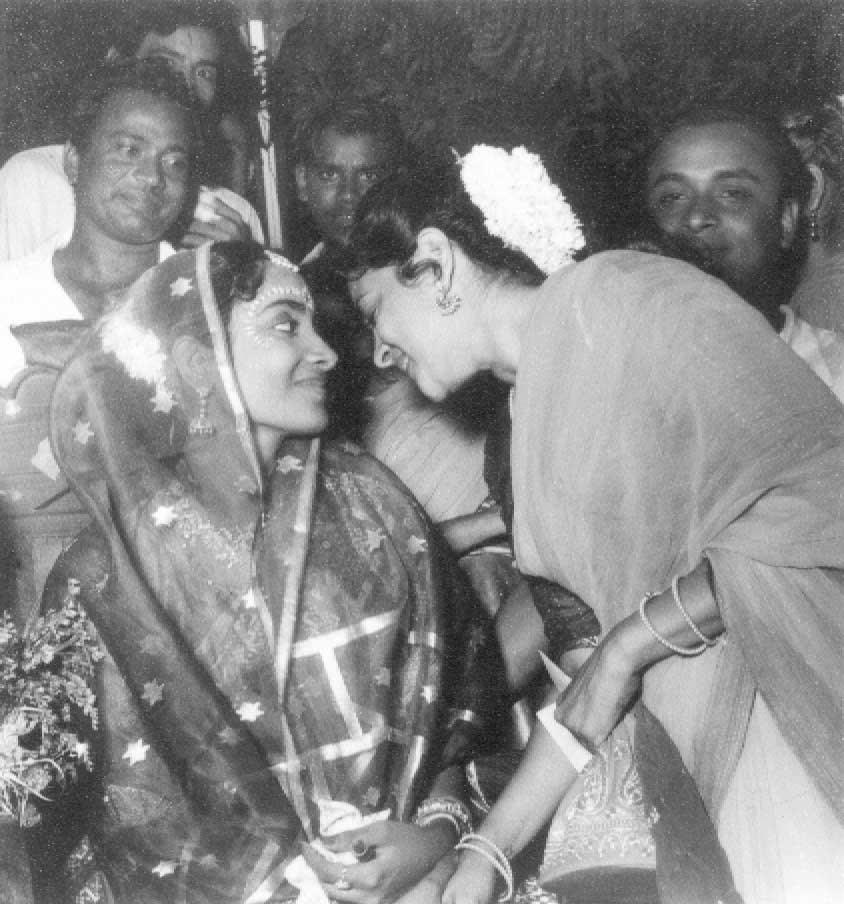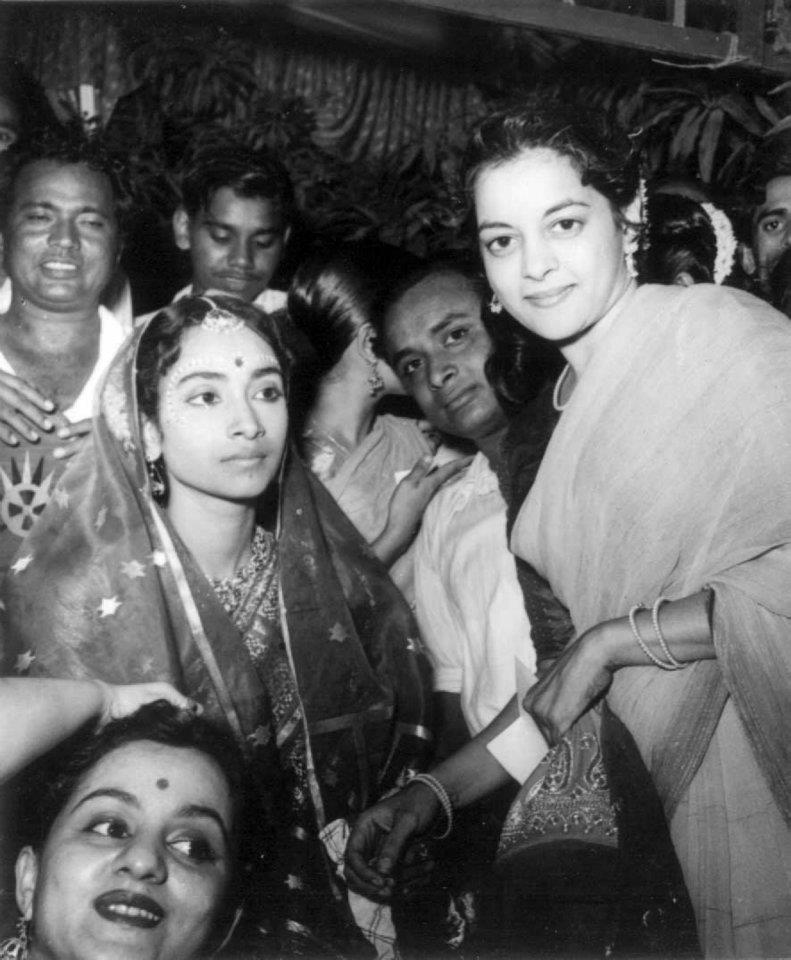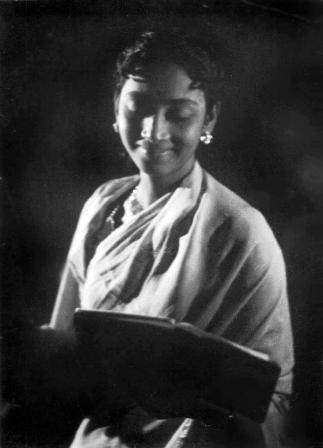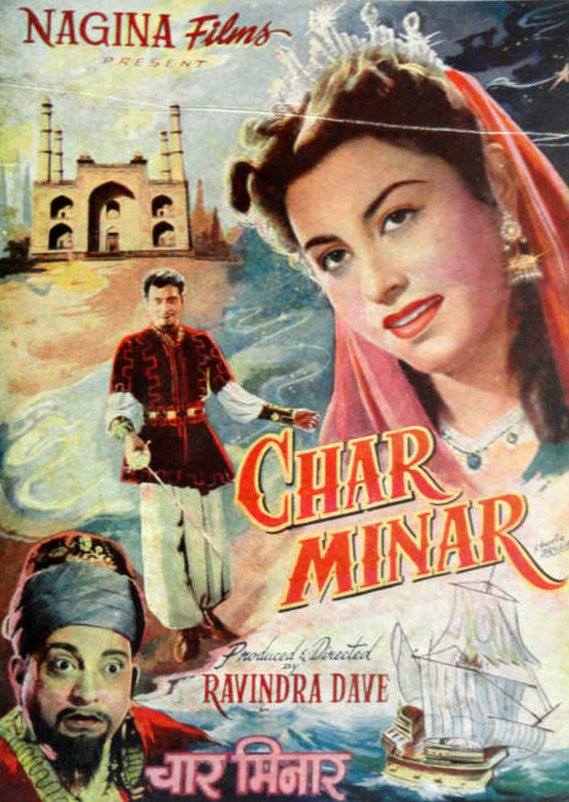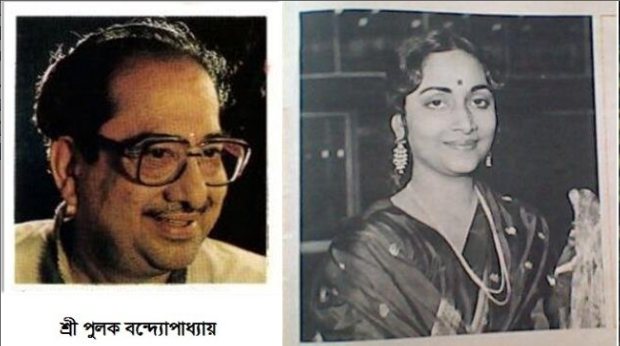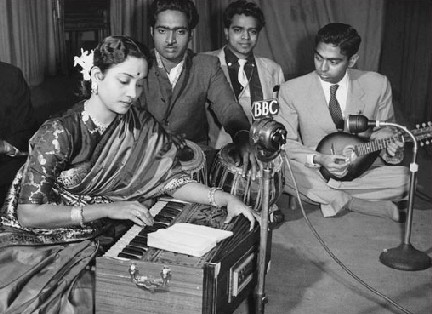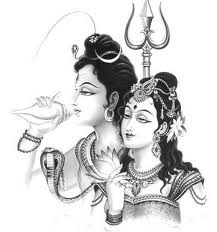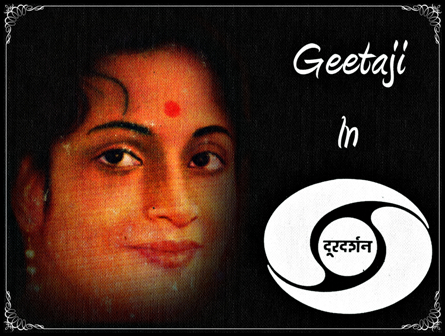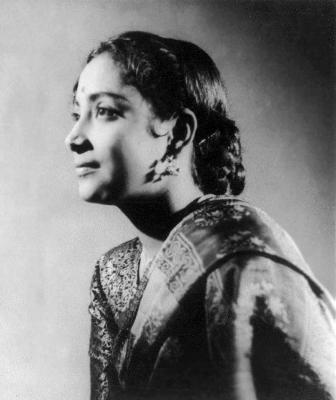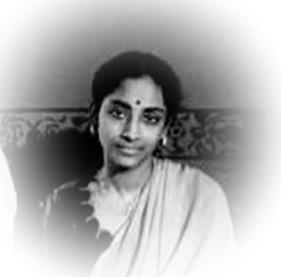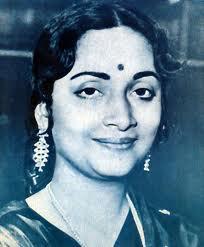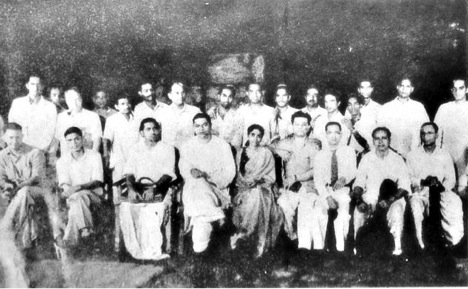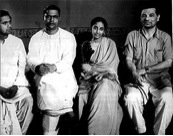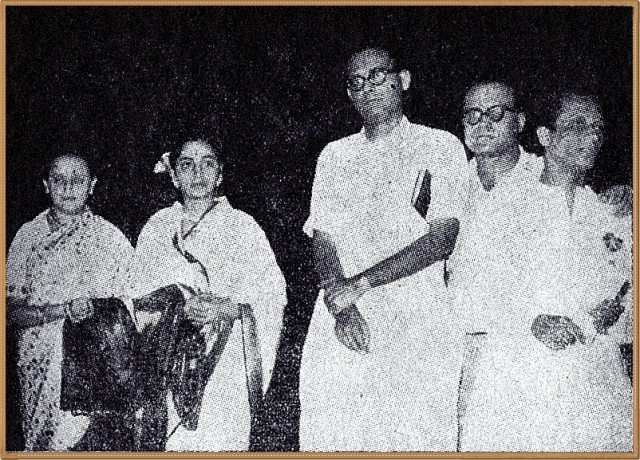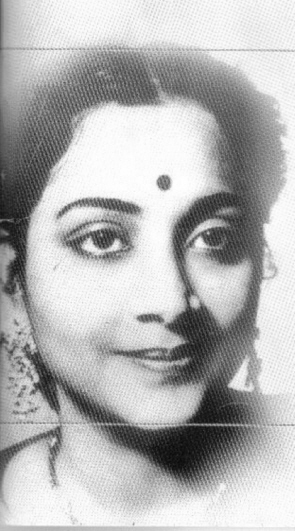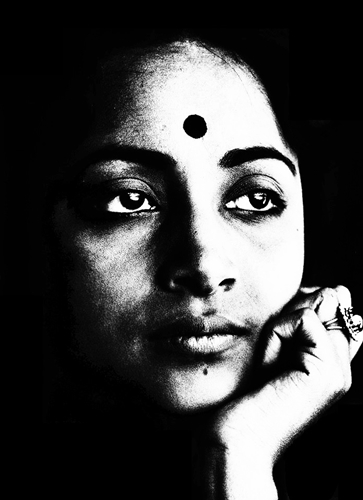
“Geetadi had come to Calcutta for three or four days to attend a few musical programmes arranged by my close friend, Barin Dhar (this was around the mid sixties, after the demise of Guru Dutt). Hearing the news of her coming, I went to the hotel where she had lodged along with music composer Rotu Mukherjee with a request that she should record songs in Rotu’s composition that year. Geetadi agreed as soon as we placed our request. She was very happy with the proposal and with a lot of enthusiasm she rehearsed her new song, “Aha Swapna Swapna Sobkichhu Aaj Lagchhe”, which was penned by me and tuned by Rotu.
From the hotel itself, I gave a call to the office of HMV to inform that Geeta Dutt had agreed to record Bengali songs for Basic Disc this year. Informing that she would be here for another two or three days, I asked the official for a date. The business institution HMV, without wasting a second answered, “We are not interested in recording Bengali songs of Geeta Dutt.”
We were not given a recording date and I had to lie to Geetadi, telling that in the coming fifteen days, there was not a single slot free for recording at the HMV studio. I and Rotu left Geetadi’s room”, thus recalls eminent lyricist Pulak Banerjee.
Around fifteen years later, a Basic Disc of Haimanti Shukla (released in Pooja, 1979) contained four songs, three tuned by Manna Dey and the fourth, by Rotu Mukherjee. The fourth song was, “Aha Swapna Swapna Sobkichhu Aaj Lagchhe” – yes, the song Geeta Dutt was supposed to record in the mid sixties, the song, an artiste of her stature (who during a period may have even cancelled projects directed towards her, due to lack of time – considering her then busy schedule) had enthusiastically learnt from her junior composer, eagerly willing to record!
AHA SWAPNA SWAPNA SOBKICHHU AAJ LAGCHHE,
AMAR SONGI HOYE CHANDRAKALA JAGCHHE.
Today, I feel as if everything is a dream and just the crescent moon is spending this sleepless night with me, as a close companion…
EKI BAUL BAUL BATAS BOKUL-GONDHE ,
KAR EKTARATI BANDHLO BYAKUL CHHONDE.
Allured by the sweet smell of the Bakul (Maulsari) flower, the wind seems to have tuned its Monochord, and is moving around, like a Minstrel…
TAR MISHTI MISHTI GAANER DOLA LAGCHHE,
AMAR SONGI HOYE CHANDRAKALA JAGCHHE.
I can feel the swing (rhythm) of its sweet song, with just the crescent moon as my companion in this sleepless night…
JENO AMAR ONEK DINER ICHHE GO,
CHOKHER KONE AAJKE DHORA DICHHE GO.
My long-unfulfilled wishes now seem to have got an opportunity to take shape and are appearing before my eyes…
EKI NATUN NATUN MONER KOTHAR GOLPE,
TAR EKTI ASHA METE NA AAR ALPE.
But in the crowd of the new dreams that are arising in my mind, my expectations (for fulfilling them) seem to rise and rise…
MON BHABTE BHABTE KATO CHHOBI ANKCHHE,
AMAR SONGI HOYE CHANDRAKALA JAGCHHE.
In this phase, in its dreams, my mind goes on painting so many pictures, with just the crescent moon accompanying, in this sleepless night…
RELEASE : POOJA, 1979
RECORD NUMBER : S/7EPE 3268
SONG : AHA SWAPNA SWAPNA SOBKICHHU AAJ LAGCHHE
LYRICIST : PULAK BANERJEE
MUSIC COMPOSER : ROTU MUKHERJEE
ARTISTE : HAIMANTI SHUKLA
Please click on the triangle next to the song name below to listen to the song
Haimanti Shukla : AHA SWAPNA SWAPNA SOBKICHHU AAJ LAGCHHE : Non-film, MD – ROTU MUKHERJEE, Lyrics – PULAK BANERJEE
Whosoever may have finally been selected to record this song, I hear this song only in Geeta Dutt’s voice! This song just can’t be anyone else’s. Just hear Haimanti’s rendition. She is an excellent artiste; no doubt and she has her own style of singing. But in this song, who knows why, in my ears she still sounds like Geeta Dutt. Friends, please hear and judge, I do not intend to force anyone to believe what I feel – rather, why should I? I feel some divine connection with my beloved Geetaji when I hear this song (so what if it has actually been recorded by someone else) and keep hearing again and again, often with tears flowing down my cheeks.
Just consider the time when this song was first presented before Geeta Dutt – say, 1965-66 (yes, I am sure it was one of these two years, the reason – let that remain untold right now, I am afraid, some associated naming can hurt other’s feelings. Just keep in mind that Geetaji was once again ‘allowed’ to record Bengali songs in 1967) and the condition of her mind then. A shattered person in every respect, having lost her love, almost lost her career, deprived of basic needs of life – have read from authentic sources that she was even deprived of her own wealth, not even the basic amounts, with which she could live a life up to some standards with her children, and one, who had just come out of a severe nervous breakdown. An artiste she is, whatsoever be the circumstances, how could she have survived without her Art (not to forget, she had recorded her ever-famous song, “Aaj Ki Kaali Ghata” in 1966, when she is already in a financial crisis, free of any payments, as Kaifi Azmi had once recalled – that proves how great an artiste she was – not the money, but the pleasure of being associated with her Art was what, mattered for the inner soul of Geeta)? Geeta Dutt was then gradually trying to come back to her career, singing in public functions now and then, wanting to explore, whatever little may have been remaining for her, in her life.
My attempt at translating the song may have been far from perfection, but whatever little it is, friends, try to follow the lines, each time remembering Geeta Dutt’s condition then. At the verge of those shattering days of her life, when she is trying to put herself and her career back to shape, wasn’t her recent past (the past two or three years of her life from then) seeming just like a dream? Isn’t she still spending sleepless nights, thinking how she should proceed so that she can raise her children to her satisfaction? Hasn’t the sweet wind, so long seeming to have stopped blowing, just begun to sing it’s tunes in her ears, blowing gently, rejoicing her plans for a comeback? Isn’t she losing track, while keeping in mind all her dreams, all expectations from her own self, as she steps back to the battlefield of life, in which, she has accumulated wishes to win?
Who knows, with all these thoughts in mind, perhaps tears had been flowing down Geetaji’s cheeks as she was read out and made to rehearse “Aha Swapna Swapna Sobkichhu Aaj Lagchhe” – maybe her soul was finding company in the song, she was finding her own self amidst the song! At the verge of all this, the song, which by then had been fully rehearsed, was ‘snatched away’ from her. To me, it seems like a great distance being created between one and her closest associate – a close friend, a soul’s mate. Whenever I think of this song and the incident associated with it, I seem to visualize Geetaji, at first all alone… Then rejoicing a close friend’s arrival as she learns the song and seemingly finds her own self in it… And finally, the given gift (the suddenly-arrived close friend – the song) snatched away from her (HMV refusing to record her Bengali songs) and Geetaji going back to her initial phase of loneliness, of desperation… Do not know if I would have felt the same if it had been some other sort of song. This very feeling makes me too emotional while I hear this song… I find Geeta Dutt in it… Whosoever might have finally recorded it, for me, “Aha Swapna Swapna Sobkichhu Aaj Lagchhe” remains Geeta Dutt’s and will ever remain hers!
Today, that she is no more with us, it is perhaps useless to think in this way. Whatsoever may have happened, I have nothing to do today. But just as years pass by, we complete spending thirty nine-forty-forty one years without Geeta Dutt, yet rejoicing her melodies, deriving our pleasure and joy in life, from her dulcet renderings, I find myself guilty today. Do not know who else would share the same feeling… The very person, through whose melodies we find our happiness in life even after four decades of her demise – in those sleepless nights, had just wanted to dream of a bright day ahead – in the silence of the night, had just wanted the crescent moon as a companion – and we deprived her of even that?
Acknowledgements:
We are grateful to our dear friend Sounak Gupta for this excellent research based article as a tribute to Geeta ji.
